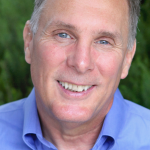
 I’m an older first time father, a late bloomer dad, a more senior sire. Our son was born when I was age 49, and our daughter arrived three years later.
I’m an older first time father, a late bloomer dad, a more senior sire. Our son was born when I was age 49, and our daughter arrived three years later.
While I’ve discovered over this past decade of parenting that becoming a father in the maturity of midlife has proved to be a distinct advantage for me, I certainly didn’t always think so.
At first I was scared. I didn’t know whether to celebrate by jumping for joy or leaping from the nearest cell phone tower. Would I have the stamina, regret my loss of freedom, live long enough, remember my math?
But the most terrifying and persistent fear I harbored was: Would the world mistake me for grandpa?
This vanity threatened my sanity. It’s one thing to appreciate the tangible benefits of midlife fatherhood, such as having more money, more patience, more empathy, more career flexibility, and an appreciation for deeper meaning in life, among many others.
But it’s an entirely different matter to feel comfortable as an older dad in a society that is youth obsessed and bombarded by images of “perfect” parents in their 20s, flashing the kind of fresh smiles on flawless shining faces found at university graduation ceremonies.
While the trend continues for women and couples to delay having babies, the reality of parenthood is that most folks still have children in their 20s and 30s. We live in northern California where there are plenty of mature dads around. Yet at every playground and play date, I still felt surrounded by two generations of youngsters.
While I bolstered up a secure, well-balanced outer front, my inner Methuselah cringed and sprouted more gray every time I sensed someone purposefully withholding “the question.” I could see it in their eyes, their minds racing: Is he the grandfather or father… better not ask… might prove embarrassing… avoid the issue… avert eyes… retreat… dive, dive.
Even though my wife assures me I look a decade younger than I am, incidents proved I was not just suffering paranoid imaginings. A couple people over the years have in fact mistaken me for grandpa. I corrected them and laughed it off. Nevertheless, it stung.
Then one day several years back, I experienced the psychological breakthrough that provided healing insight into my age issue. We invited two other couples and their children over for a cookout. During the course of the evening, all the kids followed my then three-year-old son’s lead of stripping off his clothes and running wild and naked around the house and yard strumming a toy guitar.
The kids were squealing with joy, having a riot. I was a bit concerned that some of our parent guests might object to this permissive nudist romp, so I asked gently if everything was okay.
One of the young moms, barely 30 years-old at the time, gave me a genuine, reassuring smile and said, “We just love coming to your house. It’s like Woodstock!”
Wow. Her words warmed me like hot chocolate on the ski slope. This wonderful woman was not even alive when Woodstock surprised the world. Yet her reference reminded me that we parents, regardless of our external differences, share a common bond that deeply unites us.
We pull together as kindred spirits while roaming through this parenthood festival, sharing our celebrations and making the best of things, whether “the New York State Thruway is closed, man,” or we’re dancing in the sunlight or slogging through the rain and mud.
In just a few brief moments of reflection on her kind, inclusive words, I happily experienced the healing transformation of feeling fully accepted.
I realized that not one of my younger parent friends had ever discriminated against me because of my age. They’d always accepted me and treated me as an equal, just another new dad, fumbling around, back aching, trying to figure out how to do what’s best for the children.
All my fears of being perceived as a dozing, drooling Grandpa Simpson had been unfounded, nagging phantoms inside my own crazy head. I’d tortured myself by comparing my insides to younger parents’ externals. I had been my own worst enemy. I was the ageist!
What a revelation. This mature, former citizen of the Woodstock Nation (now finding refuge in the Colbert Nation) finally realized he was diminishing his own enjoyment of fatherhood by worrying about age. I now openly and honestly discuss the issue when occasions arise. Interesting conversations ensue. A 33-year-old father of two recently confided to me that he secretly felt too young for fatherhood.
I’ve come to understand that my fears about being outside the norm resulted from my own lack of acceptance of myself as a later blooming dad. It’s an inside job. No one else seems to care. I decided to seize the daze and focus on being a doting, not doddering, dad.
 Len Filppu is a writer/screenwriter who’s worked as a communications executive in Silicon Valley, served as a press secretary to Jimmy Carter and on Capitol Hill, and helped produce a low budget, rock ‘n’ roll horror movie. But the best thing he ever did was become a first-time father in midlife. Read his regular columns on Huffington Post Parents at http://www.huffingtonpost.com/len-filppu/, buy his book, PRIME TIME DADS: 45 Reasons to Embrace Midlife Fatherhood (www.primetimedads.com), and follow him at www.twitter.com/MidlifeDad.
Len Filppu is a writer/screenwriter who’s worked as a communications executive in Silicon Valley, served as a press secretary to Jimmy Carter and on Capitol Hill, and helped produce a low budget, rock ‘n’ roll horror movie. But the best thing he ever did was become a first-time father in midlife. Read his regular columns on Huffington Post Parents at http://www.huffingtonpost.com/len-filppu/, buy his book, PRIME TIME DADS: 45 Reasons to Embrace Midlife Fatherhood (www.primetimedads.com), and follow him at www.twitter.com/MidlifeDad.
This was originally published on 10/28/10.
